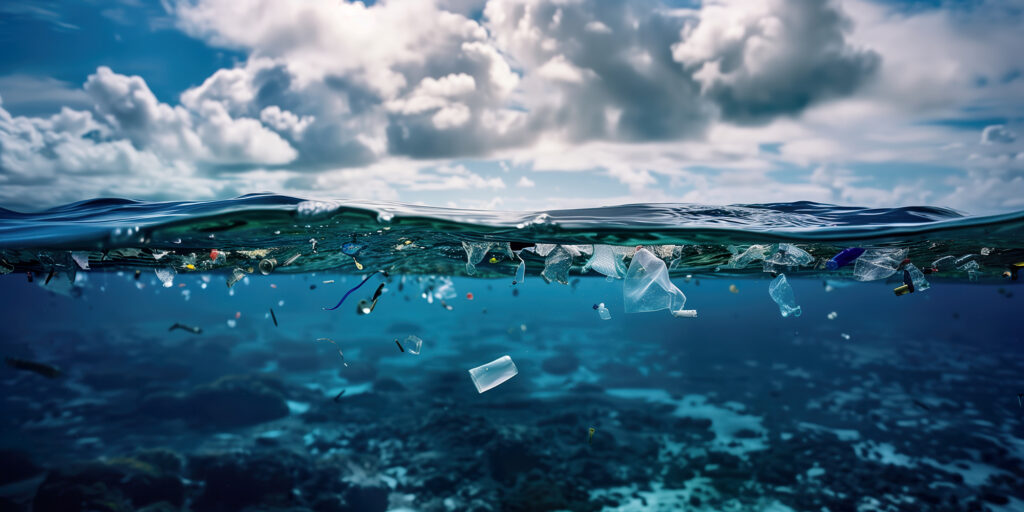Up to 10 million metric tons of plastic end up in oceans every year, adding up to one of the most urgent environmental challenges of the 21st century. To address the issue, the National Oceanic and Atmospheric Administration (NOAA) has granted $1,999,255 to research co-led by Clay C. C. Wang, chair of the Department of Pharmacology and Pharmaceutical Sciences at the Mann School of Pharmacy and Pharmaceutical Sciences.
The funding, awarded to the USC Sea Grant project, leverages a method developed by Wang and colleagues that transforms plastic waste into products such as medications, laundry detergent and fabric dyes. The process can even be used to generate potential therapies for cancer.

Wang is heading the collection and conversion of these ocean-clogging pollutants with Professors Travis J. Williams of the Department of Chemistry at USC Dornsife and Richard W. Roberts in the Department of Chemical Engineering and Materials Science at USC Viterbi.
“We’re harnessing the power of nature to convert trash accumulating in our world’s oceans, such as microplastics and fishing lines, into useful products,” Wang says. After a pilot period, the work will be scaled up for commercial-level production with industry partners, he adds.
“When it comes to marine debris, it’s not enough to point to the problem and then hope it goes away,” notes Joe Árvai, director of the USC Wrigley Institute for Environment and Sustainability, which houses the USC Sea Grant project. “We need to identify approaches that will keep marine debris from entering the ecosystem in the future. And we need to simultaneously develop approaches that make the existing debris a value-added resource. It’s this value creation that will help to incentivize a necessary present-day clean-up. And that’s what our innovative and timely project sets out to do.”
The endeavor will also examine social barriers to the marketplace adoption of trash-derived products and familiarize the public with the benefits of such emerging technologies. USC Sea Grant Director Karla Heidelberg will lead outreach and educational initiatives on environmental plastics by providing resources and strategic partnerships with local municipalities and nonprofits such as Heal the Bay.
The award marks the first federal grant USC has received since launching its sustainability initiative. It was bestowed through the Marine Debris Challenge and Community Action Coalitions competition, a $27 million investment from NOAA in the prevention and removal of waste from coastal, marine and Great Lakes environments throughout the U.S. The initiative receives support through the Bipartisan Infrastructure Law and Inflation Reduction Act.
Learn about the funding and descriptions of all 21 awarded projects and follow the progress of USC’s project.


